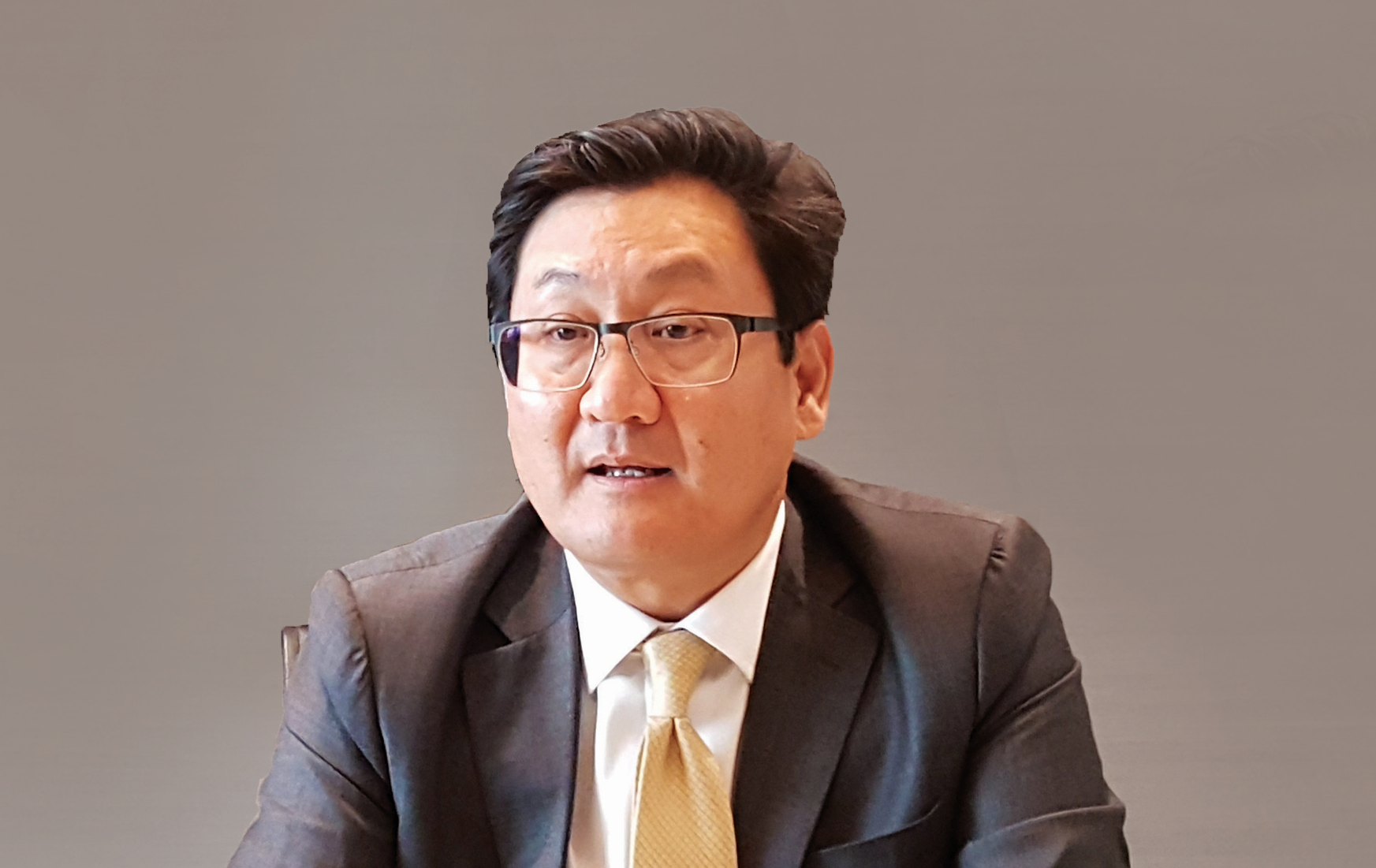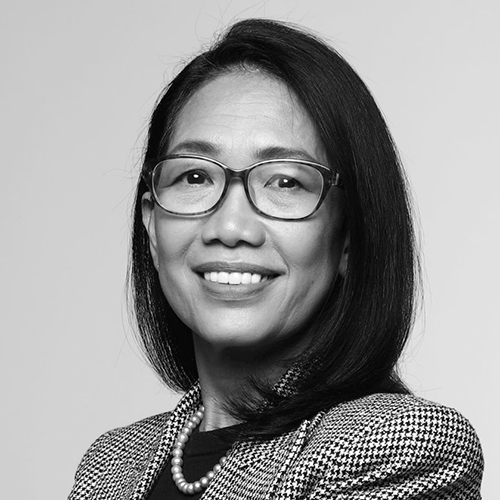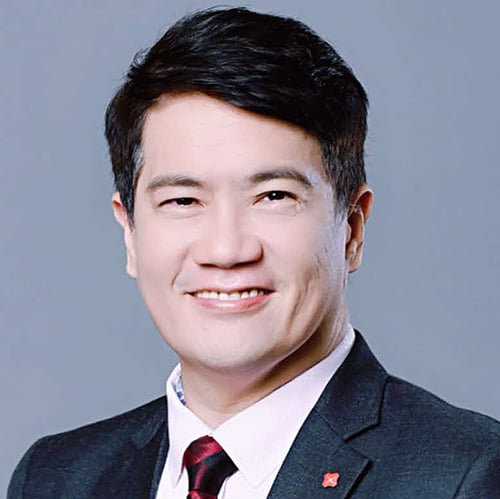
What is the new era of the capital market in Thailand?
When you look at all the challenges – technology disruption, demographics, interconnected global economies, regulation and the new policy of the government to promote the economy using the capital market – these are new. It is up to us how we utilize the opportunities that come with these challenges.
On technology disruption such as artificial intelligence, cloud computing and blockchain, how a stock exchange and the capital market respond will be important for the future. I don’t know what we are going to be. But I know that the Thai capital market is going to be big.
The stock exchange might be different in its form but not in its function. We might be using technology but with new regulation. This is the time we need to adapt or evolve.
How feasible is the use of blockchain to power exchanges?
Blockchain gives us the opportunity to be more efficient. For example, when you look to blockchain to perform the function of a registrar or a depository, it will be far more efficient than the current practice. But it might not be the only answer for the transformation of a stock exchange.
Blockchain gives us the opportunity to be more efficient. For example, when you look to blockchain to perform the function of a registrar or a depository, it will be far more efficient than the current practice. But it might not be the only answer for the transformation of a stock exchange.
But it also depends on the change in regulation especially the concept of centralized and decentralized. That is important. If you want to become more efficient or decentralized, blockchain will be one of the ways to go. But in other areas, such as in situations where you need a lot of trust, you still need big brother to come in to regulate. I don’t think that blockchain would be feasible for those kinds of function.
Then there is the matter of speed. At the moment, the speed of distributed ledger technology is not there yet. For example, in the case of speed of execution, blockchain cannot provide efficiency in that area.
We have done experiments such as with one of our new platforms called LiVE. That is totally built on blockchain technology. It is a platform that allows startups to register and investors can come in and trade on the platform. We perform all the exchange services, but we don’t call it as an exchange. It is an OTC (over-the-counter) platform to handle the registration, trading and post-trade service.
We see blockchain as a tool to increase efficiency; a new way of doing things quicker. For example, if we talk about settlement cycle of T+2, what could be the next cycle? It is going to be T from T+2. That will require a lot of change in technology. Blockchain can provide that solution.
In the future, if you look at ICO (initial coin offering) and compare it to IPO (initial public offering), there are a lot of commonality and a lot of difference. If we are going to transform from an exchange that only handles IPO to an exchange that can also handle ICO, what do we need to do? That is what we are looking into at the moment.
It is not just the technology. It is also the concept. ICO is purely decentralized while IPO is centralized. These are the two directions we need to look into. It is about the concept of the future of investment and on which direction we will go: either we will continue to depend on a lot of intermediaries or it will be about depending on yourself and relying on many sponsors to provide you with the information on services that you need. These sponsors do not come to you; you need to reach out.
It is possible that both futures can co-exist. For the decentralized future, it is about diversification allowing you to take on more risk just like a startup. The success rate is likely to be lower and you cannot just invest in one asset. In the case of an IPO, you have the regulators to provide the screening on these assets, which is quite different from the decentralized model.
You have proposed that SET should be a market of well-being constituting infrastructure, hospitality, tourism, healthcare and food as the underlying sectors. What’s behind this?
When you think of Thailand, today you will hear a lot about Thailand 4.0 and about startups. But the country also has a strong foundation. It comes from the real sector in a number of fields, especially the well-being business.
When you think of Thailand, today you will hear a lot about Thailand 4.0 and about startups. But the country also has a strong foundation. It comes from the real sector in a number of fields, especially the well-being business.
The business of hospitality, healthcare, tourism, agriculture and food constitute the strength of Thailand. It is also about how to create well-being. Investment in infrastructure projects is also about how to create well-being. It is significant in Thailand and in the region. Countries such as Cambodia, Laos, Myanmar and Vietnam have a lot of attractions that draw in tourists.
Thai companies such as AOT (Airports of Thailand), for example, is the number one airport operator today in terms of market capitalization. BDMS (Bangkok Dusit Medical Services), a hospital operator, is number five; Minor Group, the restaurant operator is number 10 or 11; Thai Union Frozen is all over the world. Central Group buys assets everywhere. These companies are significant and are global players in the area of well-being.
As a stock exchange, what role and concrete steps are you taking to promote ESG?
We started 10 or 20 years ago by ensuring the quality of companies, which is about corporate governance. We set up the Institute of Directors, Corporate Governance Centre and promoted companies to understand corporate governance and investor relations practice. We also invited third parties to organize workshops on corporate governance. Once we achieved a sufficient level – we were ranked by Asian Development Bank as number one in Asean on corporate governance – we moved to the next step.
We started 10 or 20 years ago by ensuring the quality of companies, which is about corporate governance. We set up the Institute of Directors, Corporate Governance Centre and promoted companies to understand corporate governance and investor relations practice. We also invited third parties to organize workshops on corporate governance. Once we achieved a sufficient level – we were ranked by Asian Development Bank as number one in Asean on corporate governance – we moved to the next step.
We introduced ESG reporting to the large listed companies first and secured their buy-in. The 17 Thai companies included in the Dow Jones Sustainability Index is the most in the Asean region. These are coming from different sectors – banking, consumer products, and so on. Now, we are promoting ESG to the smaller companies.
We will introduce a new index called TSI – Thailand Sustainability Index. We are also conducting workshops for the smaller companies to understand that it is possible to follow the same concept. We organize events to showcase companies and their accomplishments and why they have been recognized globally. We also want to make people in the country aware about it.
Adopting ESG is not cheap. It involves work. We want to show investors and the public at large that these companies are doing a good job and should be recognized. With the TSI, investors can create a product that local and international investors can invest into. The value is that once you have been recognized in ESG, you are able to attract investors.





.jpg)
.jpg)


